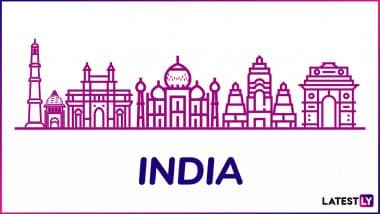New Delhi [India], Nov 5 (ANI): India under Prime Minister Narendra Modi has become one of the world's most open economies with very few barriers to trade, both tariff and non-tariff, will avoid pitfalls of entering agreements, which are in reality FTAs by stealth with countries with whom it is already suffering huge trade imbalance and market distortions, according to government sources.India is exploring trade agreements with the US and European Union, where the Indian industry and services will be competitive and benefit from access to large developed markets.Even as India on Monday decided not to sign the Regional Comprehensive Economic Partnership (RCEP) as it does not satisfactorily address its outstanding concerns, the government has earlier taken a series of "pro-Indian industry" measures.According to the sources "poor negotiations" of FTAs (free trade agreements) by the previous government caused harm to Indian industry and led to the distorted trade balance.The sources said India has already secured agreement in ASEAN for a review of the FTA and a review of FTA with Korea started three years ago and is being fast-tracked.A Joint Working Group is discussing the issues to be addressed in Japan FTA.The government sources said that various industries especially farmers, small scale and handloom sector were benefitting from decisions taken on imports.Import of Agarbatti, which has been put from `free category' to 'restricted category' has boosted the domestic industry especially the small scale sector.Suitable safeguard duty of five per cent has been imposed on palm oil to address the import surge and protect the interest of the domestic industry and will benefit Indian farmers, the sources said.They said that in order to safeguard the interest of local cashew planters, Minimum Import Price of cashew kernel broken has been raised from Rs 288 per kg to Rs 680 per kg and cashew kernel whole from Rs 400 per kg to Rs 720 per kg.In order to ensure remunerative price to the farmers, import of peas and pulses has been restricted and import of only 4 lakh MT of toor and 3 lakh MT of moong and urad has been allowed for 2019-20.The sources said that in order to monitor the import of steel, a Steel Imports Monitoring System (SIMS) has been launched.They said that to mitigate the shortages of maize (feedgrade) for poultry and dairy farming, import of 5 lakh MT of feed-grade maize has been allowed at lower 15 per cent customs duty instead of normal customs duty of 50 per cent. (ANI)
(The above story is verified and authored by ANI staff, ANI is South Asia's leading multimedia news agency with over 100 bureaus in India, South Asia and across the globe. ANI brings the latest news on Politics and Current Affairs in India & around the World, Sports, Health, Fitness, Entertainment, & News. The views appearing in the above post do not reflect the opinions of LatestLY)













 Quickly
Quickly


